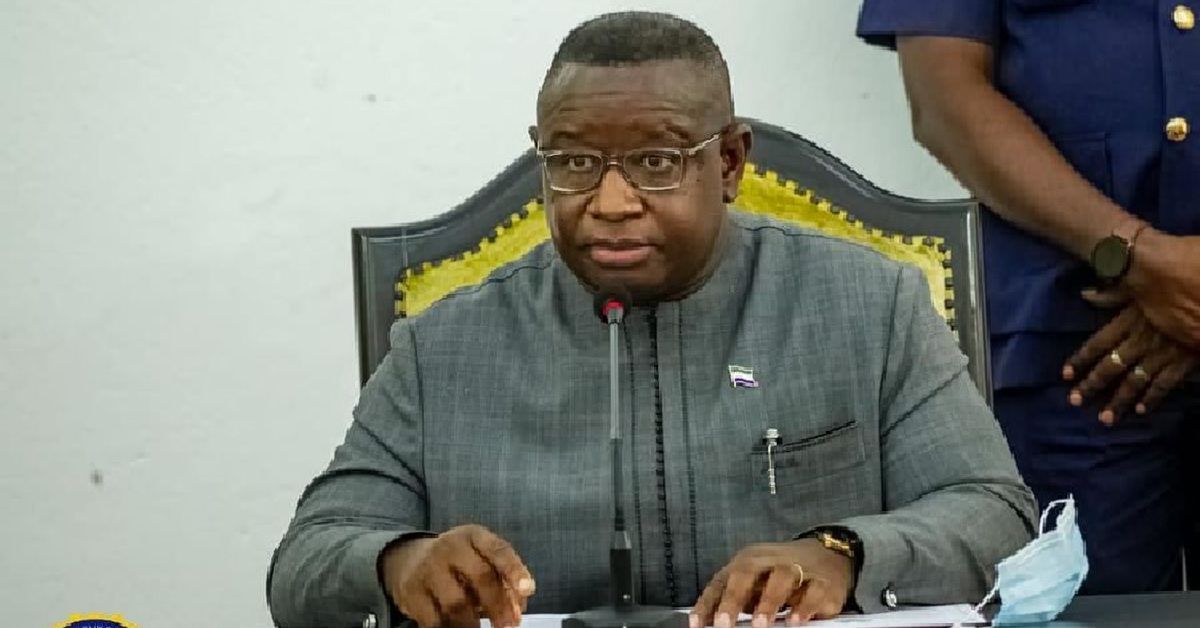The Millennium Challenge Corporation has notified the government of Sierra Leone that they intend to invest $11,970,735 in development assistance to the Government of the Republic of Sierra Leone to facilitate the development and implementation of a Millennium Challenge Compact.
MCC plans to finance critical feasibility studies to further develop and design the proposed Sierra Leone compact in four areas of opportunity, including but not limited to, assessing the expected impact of the proposed compact, furthering design activities, and developing implementation strategies.
MCC selected Sierra Leone for development of a compact program in December 2020. MCC and SLCDU subsequently identified four binding constraints to economic growth in Sierra Leone: power, food insecurity and supply, health, and water in Freetown. MCC and SLCDU validated these findings in consultations with government officials, sector experts, the donor community, and stakeholders nationwide. Since that time, in consultation with the Government of the Republic of Sierra Leone, MCC has decided to move forward focusing solely on the power constraint, while continuing to investigate opportunities to address targeted aspects of food insecurity in Sierra Leone through the productive use of electricity.
MCC and the Government of the Republic of Sierra Leone are working on four areas of opportunity as the basis for potential compact projects. The proposed investments target the following objectives: · Access and Reliable Supply. Invest in infrastructure to improve equitable access and reliability, including climate-resilient transmission and distribution infrastructure to reduce technical losses, support for increased supply in the form of renewable energy, and increased access. · Governance. Strengthen institutional governance and capacity in the power sector, including technical capacity building, improved institutional coordination, and strengthened policy, regulation, and tariff frameworks. · Affordability. Support loss reduction, improved operations and maintenance, and increased supply of lower cost electricity, including private sector-led on-grid renewable energy supply and possible off-grid and mini-grid systems in unserved areas · Agriculture/Productive Uses. Promote the productive use of electricity, including in the agricultural economy, via strategic deployment of power investments to support off-farm food sector activities, particularly focused on reducing post-harvest losses.
In order to assist the Government of the Republic of Sierra Leone to further develop the proposed compact, MCC intends to use section 609(g) funding to finance the Government of the Republic of Sierra Leone’s preparatory activities for each of the proposed concepts listed above. Specifically, funds would be used to: Conduct studies, including climate vulnerability assessments, specific feasibility studies and gender-disaggregated data collection, designs, geospatial assessments, stakeholder mapping, and implementation preparations for power sector investments.
Provide essential inputs to project selection, such as prioritization of select transmission and distribution investments, selection criteria, modeling access based on specific criteria related to potential beneficiaries, design requirements and cost estimates.
Funds will also cover assessments of institutional and tariff reform requirements, building on the recently concluded MCC Threshold Program, o Conduct studies to amplify the impact of proposed power investments on the agricultural economy, including those focused on the demand for power and agricultural value chains.
Support the administrative stand-up of the Government of the Republic of Sierra Leone entity that will be responsible for compact implementation.
Identify implementation approaches such as project management units, partnering arrangements with the public and private sector, and non-profit or community partners, as well as beneficiary analysis.











